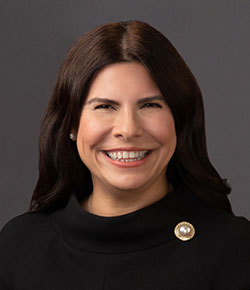“No serious studies show that municipal spending on pro sport stadiums pays off,” Roger Blair told our sister publication DR in 2016. Blair was then, and remains today, the chair of the Department of Economics at the University of Florida. Yet the City of St. Petersburg is now proposing that close to well two billion dollars of that very same “municipal spending” Blair spoke of. The public funds are to be used for the proposed new Rays professional baseball stadium. If the proposal becomes reality, the taxpayers will pick up the tab.
The city had a path to possibly prove critics like Blair wrong by requiring that any financial projections submitted related to the proposed new Rays stadium not be kept confidential. However, the city did the exact opposite.

In its request for proposal (RFP) inviting bids for the new proposed new Rays pro baseball stadium, Section 22 of the RFP laid out the city’s terms involving information that the bidder alleges is a trade secret (and therefore confidential). The city could have specifically excluded financial projections from being confidential. But it did not, and the city and the Rays are now claiming that those projections are confidential and may not be released.
“I asked [the Ken Welch] Administration to provide these records last month,” St. Petersburg City Council Member Lisset Hanewicz told The Guardian on October 30th. “These documents were provided to me and the rest of City Council Members on October 16. The documents…were specific to the 20-Year Cash Flow Analysis attached to the RFP, which we were not provided to City Council. I believe we should be privy to them.”
However, the public won’t get to see them if the Ken Welch administration has its way. A public records request showed that although St. Petersburg City Council members have seen those financial projections from the Rays, they did not retain copies.
The city administration has thus created a situation where city council members will argue for spending billions of dollars of taxpayer money based on financial projections they have seen. The public, on the other hand, will have no way to question those projections because they don’t get to see them.

“The Rays/Hines group changed their position in allowing City Council members to review the documents after I pressed the issue as long as the information is not disclosed” publicly, Hanewicz said, citing the statute she cited above. Hanewicz is an attorney, but did not answer our question how, as an attorney, she could not know that the Rays don’t get to determine confidentiality once the city has those financial projections in their possession.
In 2016, the Florida Attorney General’s office issued this legal opinion makes it clear that the city, or any public agency, must make its own determination as to whether records claimed to be confidential are in fact exempt from public disclosure. The city can not simply rely on the Rays saying that they are.
A public records request to the city showed that the city has not made its own determination as to whether the Rays’ 20-year financial projection is in fact confidential under Florida Law. Notably, one of the losing bidders, Sugar Hill Community Partners in Tampa, submitted a 20-year financial projection without claiming it to be a trade secret (see page 78).
“In that opinion, the Attorney General addressed a situation regarding the disclosure of a record that the public agency believed was not exempt, but the private entity who provided the materials claimed they were exempt as trade secrets,” Alan Zimmet wrote to us in March of this year. Zimmet is the General Counsel for PSTA and was referencing the above Florida Attorney General legal opinion from 2016.
Zimmet was not commenting specifically on the Rays’ financial projections, but instead commenting on a memo in PSTA’s possession that a PSTA vendor asserted was a trade secret. Zimmet’s legal opinion was that the memo was not a trade secret under Florida law. In the end, the memo was provided to us after the vendor chose to not seek protection for it in court. The same legal reasoning Zimmet used applies in this case.

As we reported last week, there are other documents submitted to the city by the Rays or their agents that had the word “confidential” written all over them. Under Florida Law, such markings don’t make them confidential.
This Tampa Bay Times editorial on October 24th acknowledged that, as it stands, the public will not get to see the financial projections that the Rays’ submitted to the city. The editorial expressed no objections to that state of affairs, and indicated no willingness on their part to challenge the city on its legal stance.
Here at the Guardian, we are challenging the city’s legal position because it appears clear that the Rays didn’t adhere to the RFP’s terms in maintaining confidentiality. If they didn’t, the RFP itself says that then their trade secret rights are waived.
As always….the Guardian reports and our readers decide. Like our Facebook page to find out when we publish articles.

